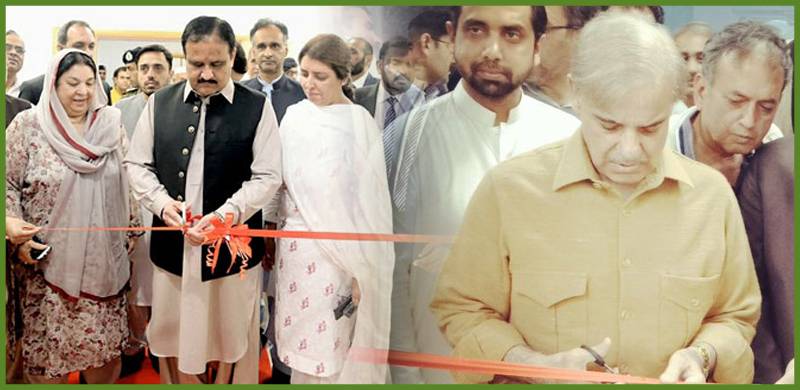
NAYADAUR EXCLUSIVE
The current provincial government of Punjab has recently stripped away the autonomy of the ‘multi-billion rupee mega health facility’, Pakistan Kidney and Liver Institute (PKLI), by passing a bill which removed Prof. Dr. Saeed Akhter as President and CEO and replaced him with a Board of Governors (BoG) like that of other public hospitals. The facility was to function on a cross-subsidy model, similar to other successful health institutions such as Shaukat Khanum Cancer Hospital and Research Center. However, this might be a difficult target to achieve given the upheavals in managing this important public facility.
Dr Saeed Akhter, in his media comments, stated that the institution is geared for a loss; “It is the second serious attempt to dent on the autonomy of the institute,” said Dr. Saeed Akhter, referring to the 11-month suo motu notice taken by former Chief Justice of Pakistan Saqib Nisar, a decision which allegedly led PKLI into a loss of Rs.6 billion. At the time, Twitter feeds were brimming with the concern: Dr. Humma Saeef, wife of Dr. Saifullah MD (pulmonary and critical care consultant in the USA) began a #civiliansupremacy hashtag, claiming that the resignation of Dr. AamirYar Khan was demoralizing; that her husband was to join PKLI but has now decided otherwise, after ‘CJ[P] Saqib Nisar victimized this state of the art institution’.
‘“What has happened at PKLI should be a case study for why Pakistan could not succeed like other countries such as Malaysia, Turkey, Korea, Japan and Germany, despite having some of the best minds in the world in all fields,” this is what Dr. Aamir Yar Khan, Medical Director and Chief Operating Office, and Chairman of Medicine, PKLI, wrote as his reason to quit’. He commented in a national newspaper saying this is a classic case of ‘small people sitting on big chairs’, as has been the case with most government-occupied institutions.”
The bigger question is: Was the PKLI being managed in an effective manner? And with the new changes, experts are divided whether BOG can take charge of a facility instead of bolstering and streamlining the management.
It is clear that politics, partisanship; and most importantly, the conflict between the former CJ and the Sharif government in the Punjab, the concerned individuals at PKLI and hyped-up media reporting has compounded the issue.
Furthermore, focusing too much on individuals rather than building a system-based organization, arbitrary rules were created in PKLI to protect certain positions. All of this damaged PKLI tremendously.
The genesis of PKLI
Dr. Saeed Akhter, Urologist and Kidney Transplant surgeon by profession, met Chief Minister Shehbaz Sharif around 2012 when Sharif’s mother-in-law was transferred from a hospital in the UK to Shifa International by Akhter. She underwent poor treatment in the UK, and thus decided to consult Dr. Akhter, whose surgery proved successful. Later, then Chief Justice Nisar was quoted to have said that appointing Akhter in charge of PKLI was a major mistake Sharif's part.
Shehbaz Sharif had two plans that he wished to execute. He wanted to establish PKLI in Lahore and wanted liver disease and liver transplant to be a part of this project. Saeed Akhter has repeatedly stated that he agreed to manage liver disease because Dr. Nadir, a transplant hepatologistand Faisal Dar, a liver transplant surgeon agreed to be part of the PKLI team and that is why they were inducted in PKLI board as well.
The government provided 60 acres of land and 200 million dollars funding to establish PKLI which was aimed to function as an independent institute with full state funding for three years after which the hospital will generate 75% of its own resources for operation as well as future growth.
Akhter wished to take complete control of the PKLI project as the visionary for this state-of-the-art hospital.He felt that he should be all powerful in the first few years or the mission would not be implemented; following the example of Dr. Zaheer Ahmad who also wore the hat as founder and chief executive of the institute at SIH Islamabad, a private for-profit hospital. Consequently, the ‘Pakistan Kidney and Liver Institute and Research Centre’ ACT 2014 (ACT 2 in Jan 2015) came into legal actualization. The act allowed Dr. Akhter to assume the titles of CEO of the hospital as well as the Head of PKLI Board of Governors. In addition, no interference was assured from the government, as per the ACT.
The PKLI board was constituted, consisting of 11 members including 5 doctors. Akhter and his wife (anesthesiologist) were both members, besides Dr. Abdul Nadir, Dr. Faisal Dar (Liver Transplant surgeon), and Dr. Nayyar Mahmood (Nephrologist, practicing at SI). Other PKLI board members—all chosen by Dr. Akhter—had business backgrounds (CEOs of Five Star Foam and Sitara Chemicals as well as CEO of Akhuwat Foundation). A PKLI trust was also created and empowered to nominate board members.
Between 2015 and 2016, the operations of PKLI were conducted from a board member’s home located in Gulberg, Lahore, donated to PKLI. Only a few employees were hired during this time and basically, the PKLI project was envisioned. A team was created, assisted by two foreign companies including MooYoung Architects as well as engineers from South Korea and CJP ARCOP, which were quite expensive (reported in the forensic audit conducted by Mr. Kaukab Zubeir).
During the hearing on 25th Dec 2018, CJP also observed that all 22 billion were spent on the Trust. When asked that he was receiving exuberant salary, Dr. Saeed Akhter replied that he did not take salary for three years and supervised over 21 kidney transplants. [However, after the PKLI hospital became functional in December, 2017, Dr Akhter and his spouse started receiving the salary until their leave of absence from PKLI, when the new committee of the Supreme Court took charge in September, 2018.]
Importance of Hepatitis Prevention and Treatment in Pakistan
According to the PKLI website, there are approximately 10 million patients with Hepatitis C and more than 5 million with Hepatitis B, from which approximately 70% live in the province of Punjab. This means that 1 in every 12 Pakistanis is stricken with this disease; the menace of Hepatitis B and C has turned into an epidemic in the country.
According to a report (2010) by the Journal of Pakistan Medical Association (JPMA), in developing countries, therapeutic injections from reused needles and syringes and improper sterilization of invasive medical devices is the major vehicle for transmission of blood-borne organisms including hepatitis B virus (HBV), HCV and HIV. These infections lead to a high burden of chronic disease, disability and death. Pakistan Health Research Council (PHRC) says that Pakistan has the highest burden of viral hepatitis in the entire world with 12 million cases of Hepatitis B and C.
At least 5% to 6% of Pakistani population is affected with hepatitis C; while a study done by the Pakistan Medical Research Council in 2007-08 reported that 7.6% Pakistani population suffered with hepatitis B and C, with around 4.8% with hepatitis C only.
Hepatitis B is preventable with a vaccine. Hepatitis C is curable with use of an oral medication combination that is currently available at relatively affordable prices in Pakistan. More than 95% cure rates have been documented by taking these medications. SOVALDI (sofusbivir), the new oral drug for hepatitis C treatment, has been registered in Pakistan on fast track and through special negotiations; its cost has been reduced by 99% as compared to that in USA. Currently, the Hepatitis Program of Punjab is controlled by Primary & Secondary Health Department (about 120 clinics), Tertiary Care (11clinics) and (25) PKLI.
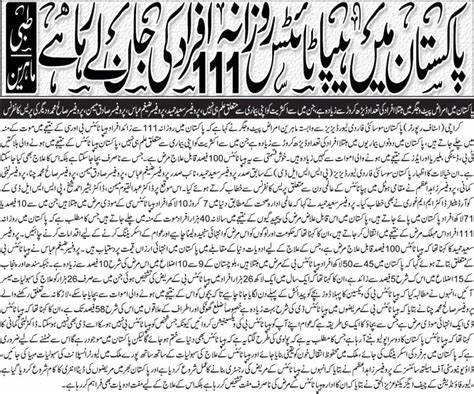 Hepatitis Prevention and Treatment Clinic (HPTC) on-ground clinical support
Hepatitis Prevention and Treatment Clinic (HPTC) on-ground clinical support
During the tenure of Dr. Saeed Akhter, three different entities were running the government hepatitis controlling effort: a primary and secondary program; a tertiary program; and the PKLI program. However, the current government of Punjab, led by Dr. Yasmeen Rashid, Health Minister of Punjab, decided to make the entire Hepatitis Program as one to ensure that there is a uniform database of all patients and no duplication of services occurs in the government run hepatitis program. The Punjab government passed ‘THE PUNJAB HEPATITIS ACT 2018 (Act XII of 2018).’ How PKLI’s hepatitis program was born is detailed below:
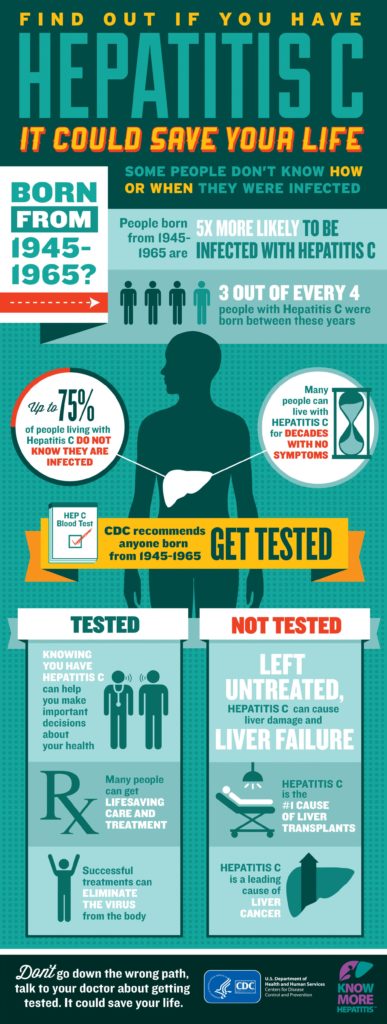
Dr. Abdul Nadir, previously Transplant Hepatologist and Chief of Gastroenterology in Maricopa County Medical Center Arizona USA, resigned from his job as Chief of Gastroenterology at Maricopa Medical Center (MMC) in December, 2016 and officially started working at PKLI in the capacity of Head of Hepatology from January 13, 2017. He was also honored with membership of the BoG at PKLI.
As Head of Hepatology and also a board member, Nadir and his team took charge and organized Electronic Medical Record (EMR) software created by Softech Company of Pakistan. According to PITB, this highly customized EMR/HIMS system keeps track of inventory records of medicines and dispensation details of each medicine maintained in the system to avoid stock-outs and pilferage. This software cost PKLI 45 lakh rupees and it was indigenous.
Reportedly, Dr. Saeed Akhter and Aamir Khan introduced a Turkish EMR at a hefty cost, at the PKLI hospital, but later changed their decision to implement this Turkish software. This created the firm, PKLI’s Information Technology (IT) department and Infrastructure Development Authority of Punjab (IDAP), leading to legal wrangling.
A functional clinic HPTC started providing services on March 19, 2017. The clinic followed a holistic vision with pediatric, adult, psychiatry and nutrition services available, besides onsite laboratory, ultrasound and endoscopy. The hospital team under Dr. Nadir started collecting data from the get-go at HPTC for accountability, improvement of quality and creation of guidelines for Pakistani patients. “At one point in 2017 we had 600 patient visits at PKLI, so much so that Dr. Akhter wanted to start an evening clinic at HPTC as well to accommodate the glut of patients.”
During Dr. Nadir’s tenure at PKLI, 10 international posters were presented from the PKLI platform in United States and Europe at prestigious conferences including American Association of Study of Liver Disease, Digestive Disease Week and European Association of Study of Liver. This was no mean feat as these international conferences reject more than 50% submissions.
As the importance of hepatitis prevention and treatment became more obvious to Akhter, he asked Sharif to provide clinics to PKLI. As a result, by summer of 2017, PKLI got the government to create 25 satellites of HPTC in 25 districts of Punjab. The program was named Hepatitis Prevention and Treatment Program (HPTP).
As per the data, the HPTP clinics screened 515848 patients from December 2017 to March 2019. Similarly, 394468 patients were vaccinated through the Hepatitis Prevention and Treatment Program being run by PKLI. However, since the Punjab government took over the control of PKLI, the HPTP program has been closed down or merged with the Punjab government’s Hepatitis Control Program and no more patients are being treated through this program.
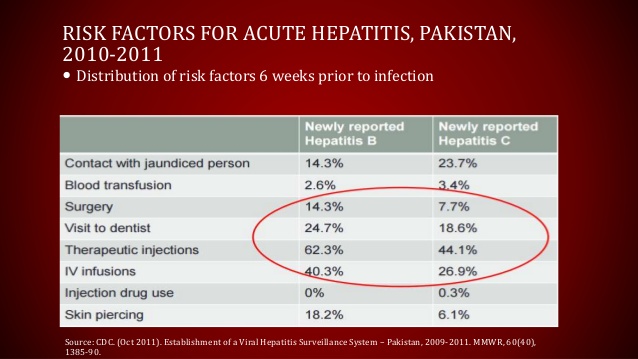 The PKLI data further shows that HPTP clinics in 23 districts and Hepatitis Prevention Control Clinic in Lahore screened a total of 914872 patients in 15 months. Similarly, the PKLI’s HPTC carried out 15775 ultrasounds, 4942 Fibro scans and 2243 Endoscopies. However, after March 2019, almost all HPTP clinics were taken over by the Punjab government’s primary and secondary program, although HPTC remains under the control of PKLI and continues to trudge along at a snail’s speed compared to what it was doing during the year 2017.However, the PKLI hepatology department to date remains involved in teaching the medical officers of the entire primary and secondary program which are now under the control of the government of Punjab (The News).
The PKLI data further shows that HPTP clinics in 23 districts and Hepatitis Prevention Control Clinic in Lahore screened a total of 914872 patients in 15 months. Similarly, the PKLI’s HPTC carried out 15775 ultrasounds, 4942 Fibro scans and 2243 Endoscopies. However, after March 2019, almost all HPTP clinics were taken over by the Punjab government’s primary and secondary program, although HPTC remains under the control of PKLI and continues to trudge along at a snail’s speed compared to what it was doing during the year 2017.However, the PKLI hepatology department to date remains involved in teaching the medical officers of the entire primary and secondary program which are now under the control of the government of Punjab (The News).
During the tenure of Saeed Akhter, the infighting between doctors over the control of HPTP and PKLI impeded the work that PKLI was meant to achieve. “After the opening of PKLI hospital in December, 2017, the facility appeared like a fish market, with too many health providers roaming the hospital without any clarity of job description”, said a doctor who worked there. Chief Justice Supreme Court, in addition to reservations over alleged overspending in PKLI, also expressed dismay at the lack of facilities in PKLI; that it was in ‘ruins’. Akhter’s style of governance allegedly entailed as little documentation as possible. For instance, Dr. Saeed Akhter appointed Dr. Amir Khan as the head of hepatitis program in addition to his posts as Medical Director, Head of HMIS, Chairman of medicine and Chief Operating Officer. Such concentration of powers was repeatedly iterated by Justice Saqib Nisar during the Supreme Court hearings of the suo-moto case against PKLI. The CJP had a point here.
Despite allocating significant resources to PKLI by the Government of Punjab, the program faced administrative failures. PKLI administration needed stronger people in procurement, HR and Finance, as a result of which, medication and laboratory tests were periodically not available at HPTP of PKLI. For much of the time, HPTC Lahore as well as all other 25 clinics treated only 20% patients of their capacity because of non-availability of medications.
Most recently, in August 2019, a news item of 130 laptops being stolen from PKLI under the nose of the PKLI administration was reported in the media.
A Lost Opportunity: the PKLI Hospital
Despite the PKLI ACT giving all authority to Dr. Saeed Akhter in PKLI without any government interference, under the pressure of Shehbaz Sharif, Akhter agreed to open an incomplete hospital in PKLI on December 25, 2017. Sharif was motivated to inaugurate this hospital as soon as possible, prior to 2018 elections, to get the most mileage from this program; perhaps a publicity gimmick to broaden the vote bank and making the public feel that younger Sharif has created an equal of the Shaukat Khanum Hospital.
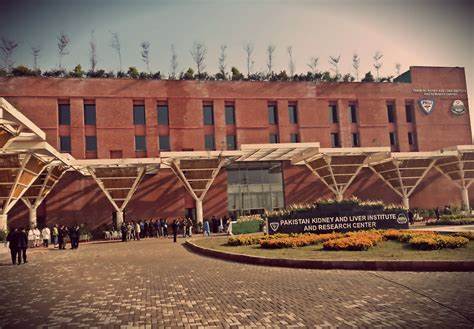
Not only was the hospital incomplete but Dr. Saeed Akhter’s appointed favorites in administrative positions—those who would toe his line and merely carry out his order without offering any advice—claims an inside source who worked there. 1400 employees were hired in the hospital for 20 beds, about 20 hemodialysis (for renal failure) beds and 20 clinics. It has also been reported that about Rs. 220 million were spent monthly for running the hospital, which included a 10 million per month electricity bill of the incomplete hospital. Around 60 foreign trained doctors were hired, receiving salaries of anywhere between 5 lakh per month to 15 lakh per month averaging about 6-8 lakh per month. CJP lambasted both the government and Dr.Saeed Akhter over hefty salaries on April 29, 2018. Replying to CJP, Akhter reiterated that he sustained an untarnished repute over the career and did not receive salary for three years.
Since the hospital was not functional, most of the consultants were sitting idle. SC bench (Dec 2, 2018) also lamented the serious lack of facilities; despite millions paid as salaries and billions spent on the institute, there was no functional facility for pediatric liver transplant. Justice Ijazul Ahsan, member of the bench, said the institute appeared like a ‘God-own’.
Another insider says that Akhter had developed severe differences with government officials. Many a time, he would cut bureaucracy short and demanded that there should be no political meddling and the BoG shall remain autonomous. Sources leveled serious allegations against Saeed Akhter as lacking interpersonal skills and repeatedly using religion for control and indulging in self-promotion through PKLI. However, this opinion was not reinforced by other members. To the contrary, when he was grilled by the CJP, social media sided with Akhter. He formed the Pakistan Kidney Institute (PKI) in Islamabad at Shifa International Hospital, where PKLI provided the exact same care to the poor, which was given to the rich, but free of cost.
As mentioned in The News, Akhter received 29 prestigious awards for his services in medical field and for bringing excellence to the field of research and education in Pakistan. He was honored with the Tamgha-e-Imtiaz by the government of Pakistan.
Our source says that when Chief Justice Saqib Nisar (CJP) was making headlines, Dr. Saeed Akhter decided to meet him in March, 2018, to get him on his side. The breakfast meeting turned into a conflict when CJP’s brother, a prominent gastroenterologist of Lahore, SajidNisar entered their meeting. Dr.Nisar immediately warned his brother, i.e. the CJP, that Akhter was paying heavy salaries in a non-functional hospital. Dr.Nisar stated that he does not even have money to repair his bathroom sink in Services Hospital Lahore while Sharifhad given Rs.20 billion to Akhter to spend. The meeting is said to have ended prematurely with Akhter and his wife leaving sour.
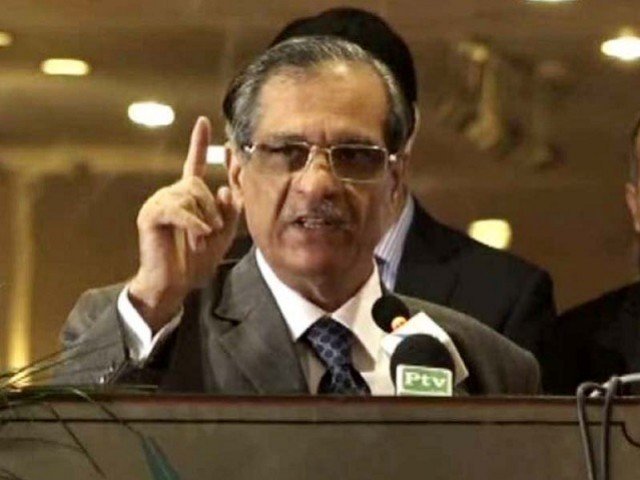
In March, 2018, CJP Saqib Nisar took notice of hefty salaries and Rs.20 billion given to PKLI, following which, in April 2018, suo moto action was taken in public interest against PKLI. Later in June 2018, SC ordered forensic audit of Rs.20 billion allocated to PKLI. Issues that concerned the CJP included discrepancies in audit, corruption, mismanagement, and hefty salaries. After the first court hearing, CJP immediately visited PKLI and found construction to be of low quality and asked where the hospital garbage was disposed. PKLI administration showed them a room where the hospital waste was to be disposed, but other material was scattered in the room, drawing even more ire from CJP and other judges including Justices Ijazul Ahsan and Ata Bandial.
Finally after several hearings, in September 2018, Justice Saqib Nisar ordered an apex committee comprised of five members to take control of PKLI’s administration and Akhter was removed as CEO of the hospital and added to the ECL. The PKLI board was made dormant. The Supreme Court ordered that Justice Iqbal Hameedur Rehman, a retired judge of the Supreme Court, be appointed chairman of the ad hoc committee; the court also appointed Prof Dr.Jawad Sajid, former professor at the Punjab Institute of Cardiology, Lt Gen Shahid Riaz (Engineer), Saifullah Chattha (Nepra member) and Khusro Pervez Khan (former secretary) as members of the committee.
The only physician in the apex committee was Dr. Jawad Sajid, a 68-year-old cardiothoracic surgeon who operates at Bahria Hospital Lahore 3-4 days a week. The committee removed Akhter from the hospital; however, Dr. Sajid delegated all responsibilities to Aamir Yar Khan and is said to have visited the hospital 5-6 days a week for a couple of hours a day, allowing Khanto run the affairs of the hospital.
Chief Justice Saqib Nisar in December 2018 inquired if a liver transplant could be performed at PKLI. In fact, the CJP had been asking Dr. Saeed Akhter since the beginning of suomoto proceedings why no liver operation had yet been done in the hospital. In December 2018, he was pressured by Dr. Huma Cheema of the Children’s hospital in Lahore that her patients were awaiting for a liver transplant and some had already died. Dr. Jawad Sajid told CJP that liver transplant was not possible until June of 2019 because of lack of equipment and functionality of hospital, although liver transplant surgeons and hepatologists were available at PKLI.
This enraged the CJP and he insisted that more than Rs.34 billion have been spent at PKLI and with this amount, five hospitals could have been created. Nonetheless, under the pressure of CJP to tender the required equipment for liver transplant, Dr. Faisal Dar conducted the first liver transplant in March 2019; however, after three liver transplant operations, no further operation could be done because of lack of supplies and equipment. It is pertinent to mention that liver transplant was meant to start functioning in June 2019, Punjab Health Minister informed the SC on January 13 of this year.
CJP had also criticized PKLI trust and questioned that under which law, 20 billion rupees were given to a private trust of people who actually did not contribute any money to this hospital. Since CJP was very critical of Dr Akhter’s authority on PKLI, the PKLI Act has been changed, and control of the hospital has been given to the government. On January 13, the Supreme Court ordered the Anti-Corruption Establishment Director General Hussain Asghar to continue probing against the previous management of the PKLI. Finally suo moto action was adjourned in January, 2019, Dr. Saeed Akhter’s name was taken off the Exit Control List and Anti-Corruption department was ordered to reinvestigate PKLI if necessary, as prior investigation was not ordered by the competent authority. Nonetheless, Dr. Akhter was still not reinstated in PKLI; however, Dr. Akhter did not elect to go to the court to explain his position or to be reinstated in PKLI using legal means.
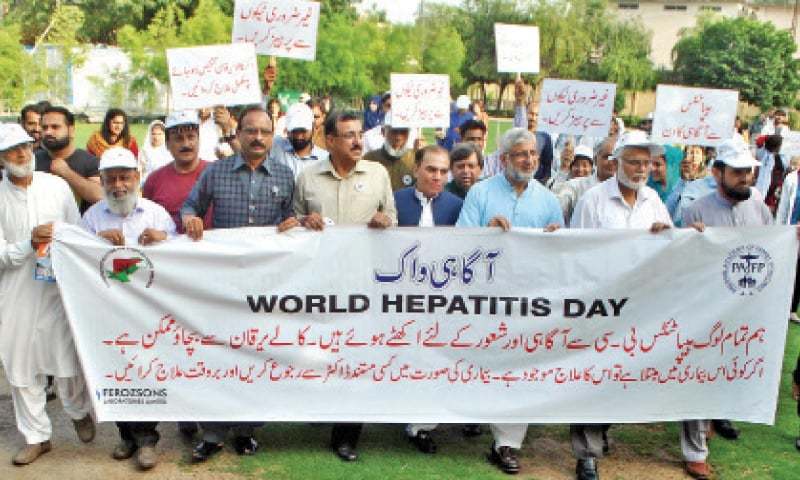 All is Not Lost
All is Not Lost
Despite serious managerial and monetary constraints, PKLI has served many patient visits under its Hepatitis Prevention and Treatment Program (HPTP) since the launch of the first Hepatitis Prevention and Treatment Clinic in March 2017, as reported in the media. Before the crisis hit the institution, 3000 patients were daily being attended to and provided with screening, vaccination and treatment, completely free of charge at the 23 Hepatitis Prevention and Treatment Clinics in different districts.
PKLI Hospital, which was launched on December 25th, 2017, has kept on trudging along despite all the political and administrative wrangling. The hospital has provided free or subsidized medical treatments and complicated operations including kidney and liver transplantation to about 90% of patients. PKLI along with the government of Pakistan was determined to make Pakistan a Hepatitis-free country by 2030, as envisaged by W.H.O. The facility and its potential were consumed by the political feud between the CJP and the Sharif dynasty. The judicial intervention did not achieve any improvement in the affairs and performance of PKLI but it certainly enabled its fall.
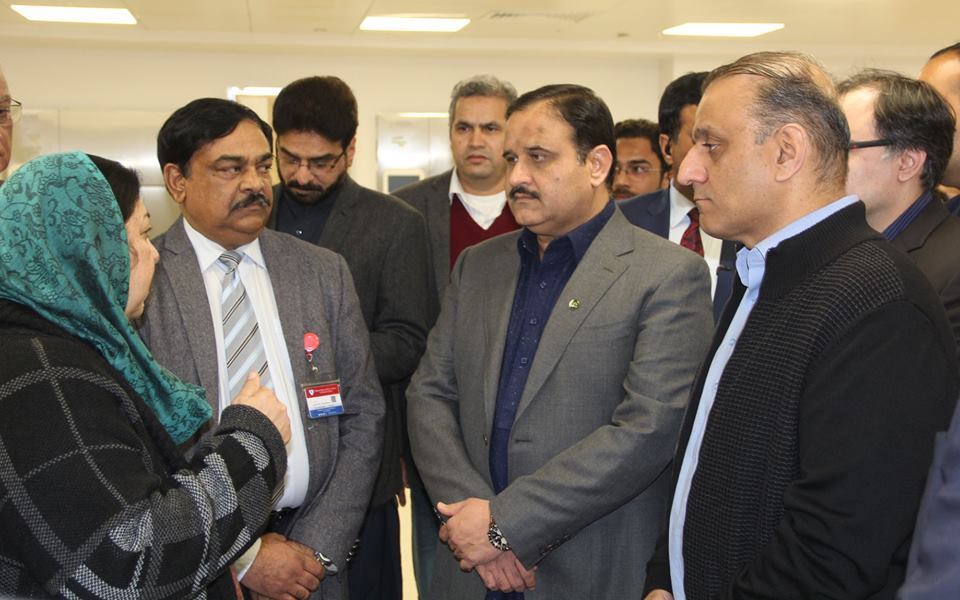
Perhaps the present government should think beyond the political considerations and focus on the prevalent epidemic of hepatitis that is killing hundreds of Pakistanis every day. The Punjab Chief Minister Buzdar’s recent visit to PKLI was a step in the right direction. Buzdar also announced that the construction of the hospital’s building will be completed by the end of this year and six operation theatres will be made functional during October 2019.
With focus, determination and clarity, PKLI and other institutions of the country can still deliver for the millions of patients suffering from variety of treatable diseases in Pakistan.
The current provincial government of Punjab has recently stripped away the autonomy of the ‘multi-billion rupee mega health facility’, Pakistan Kidney and Liver Institute (PKLI), by passing a bill which removed Prof. Dr. Saeed Akhter as President and CEO and replaced him with a Board of Governors (BoG) like that of other public hospitals. The facility was to function on a cross-subsidy model, similar to other successful health institutions such as Shaukat Khanum Cancer Hospital and Research Center. However, this might be a difficult target to achieve given the upheavals in managing this important public facility.
Dr Saeed Akhter, in his media comments, stated that the institution is geared for a loss; “It is the second serious attempt to dent on the autonomy of the institute,” said Dr. Saeed Akhter, referring to the 11-month suo motu notice taken by former Chief Justice of Pakistan Saqib Nisar, a decision which allegedly led PKLI into a loss of Rs.6 billion. At the time, Twitter feeds were brimming with the concern: Dr. Humma Saeef, wife of Dr. Saifullah MD (pulmonary and critical care consultant in the USA) began a #civiliansupremacy hashtag, claiming that the resignation of Dr. AamirYar Khan was demoralizing; that her husband was to join PKLI but has now decided otherwise, after ‘CJ[P] Saqib Nisar victimized this state of the art institution’.
‘“What has happened at PKLI should be a case study for why Pakistan could not succeed like other countries such as Malaysia, Turkey, Korea, Japan and Germany, despite having some of the best minds in the world in all fields,” this is what Dr. Aamir Yar Khan, Medical Director and Chief Operating Office, and Chairman of Medicine, PKLI, wrote as his reason to quit’. He commented in a national newspaper saying this is a classic case of ‘small people sitting on big chairs’, as has been the case with most government-occupied institutions.”
The bigger question is: Was the PKLI being managed in an effective manner? And with the new changes, experts are divided whether BOG can take charge of a facility instead of bolstering and streamlining the management.
It is clear that politics, partisanship; and most importantly, the conflict between the former CJ and the Sharif government in the Punjab, the concerned individuals at PKLI and hyped-up media reporting has compounded the issue.
Furthermore, focusing too much on individuals rather than building a system-based organization, arbitrary rules were created in PKLI to protect certain positions. All of this damaged PKLI tremendously.
The genesis of PKLI
Dr. Saeed Akhter, Urologist and Kidney Transplant surgeon by profession, met Chief Minister Shehbaz Sharif around 2012 when Sharif’s mother-in-law was transferred from a hospital in the UK to Shifa International by Akhter. She underwent poor treatment in the UK, and thus decided to consult Dr. Akhter, whose surgery proved successful. Later, then Chief Justice Nisar was quoted to have said that appointing Akhter in charge of PKLI was a major mistake Sharif's part.
Shehbaz Sharif had two plans that he wished to execute. He wanted to establish PKLI in Lahore and wanted liver disease and liver transplant to be a part of this project. Saeed Akhter has repeatedly stated that he agreed to manage liver disease because Dr. Nadir, a transplant hepatologistand Faisal Dar, a liver transplant surgeon agreed to be part of the PKLI team and that is why they were inducted in PKLI board as well.
The government provided 60 acres of land and 200 million dollars funding to establish PKLI which was aimed to function as an independent institute with full state funding for three years after which the hospital will generate 75% of its own resources for operation as well as future growth.
Akhter wished to take complete control of the PKLI project as the visionary for this state-of-the-art hospital.He felt that he should be all powerful in the first few years or the mission would not be implemented; following the example of Dr. Zaheer Ahmad who also wore the hat as founder and chief executive of the institute at SIH Islamabad, a private for-profit hospital. Consequently, the ‘Pakistan Kidney and Liver Institute and Research Centre’ ACT 2014 (ACT 2 in Jan 2015) came into legal actualization. The act allowed Dr. Akhter to assume the titles of CEO of the hospital as well as the Head of PKLI Board of Governors. In addition, no interference was assured from the government, as per the ACT.
The PKLI board was constituted, consisting of 11 members including 5 doctors. Akhter and his wife (anesthesiologist) were both members, besides Dr. Abdul Nadir, Dr. Faisal Dar (Liver Transplant surgeon), and Dr. Nayyar Mahmood (Nephrologist, practicing at SI). Other PKLI board members—all chosen by Dr. Akhter—had business backgrounds (CEOs of Five Star Foam and Sitara Chemicals as well as CEO of Akhuwat Foundation). A PKLI trust was also created and empowered to nominate board members.
Between 2015 and 2016, the operations of PKLI were conducted from a board member’s home located in Gulberg, Lahore, donated to PKLI. Only a few employees were hired during this time and basically, the PKLI project was envisioned. A team was created, assisted by two foreign companies including MooYoung Architects as well as engineers from South Korea and CJP ARCOP, which were quite expensive (reported in the forensic audit conducted by Mr. Kaukab Zubeir).
During the hearing on 25th Dec 2018, CJP also observed that all 22 billion were spent on the Trust. When asked that he was receiving exuberant salary, Dr. Saeed Akhter replied that he did not take salary for three years and supervised over 21 kidney transplants. [However, after the PKLI hospital became functional in December, 2017, Dr Akhter and his spouse started receiving the salary until their leave of absence from PKLI, when the new committee of the Supreme Court took charge in September, 2018.]
Importance of Hepatitis Prevention and Treatment in Pakistan
According to the PKLI website, there are approximately 10 million patients with Hepatitis C and more than 5 million with Hepatitis B, from which approximately 70% live in the province of Punjab. This means that 1 in every 12 Pakistanis is stricken with this disease; the menace of Hepatitis B and C has turned into an epidemic in the country.
According to a report (2010) by the Journal of Pakistan Medical Association (JPMA), in developing countries, therapeutic injections from reused needles and syringes and improper sterilization of invasive medical devices is the major vehicle for transmission of blood-borne organisms including hepatitis B virus (HBV), HCV and HIV. These infections lead to a high burden of chronic disease, disability and death. Pakistan Health Research Council (PHRC) says that Pakistan has the highest burden of viral hepatitis in the entire world with 12 million cases of Hepatitis B and C.
At least 5% to 6% of Pakistani population is affected with hepatitis C; while a study done by the Pakistan Medical Research Council in 2007-08 reported that 7.6% Pakistani population suffered with hepatitis B and C, with around 4.8% with hepatitis C only.
Hepatitis B is preventable with a vaccine. Hepatitis C is curable with use of an oral medication combination that is currently available at relatively affordable prices in Pakistan. More than 95% cure rates have been documented by taking these medications. SOVALDI (sofusbivir), the new oral drug for hepatitis C treatment, has been registered in Pakistan on fast track and through special negotiations; its cost has been reduced by 99% as compared to that in USA. Currently, the Hepatitis Program of Punjab is controlled by Primary & Secondary Health Department (about 120 clinics), Tertiary Care (11clinics) and (25) PKLI.
 Hepatitis Prevention and Treatment Clinic (HPTC) on-ground clinical support
Hepatitis Prevention and Treatment Clinic (HPTC) on-ground clinical supportDuring the tenure of Dr. Saeed Akhter, three different entities were running the government hepatitis controlling effort: a primary and secondary program; a tertiary program; and the PKLI program. However, the current government of Punjab, led by Dr. Yasmeen Rashid, Health Minister of Punjab, decided to make the entire Hepatitis Program as one to ensure that there is a uniform database of all patients and no duplication of services occurs in the government run hepatitis program. The Punjab government passed ‘THE PUNJAB HEPATITIS ACT 2018 (Act XII of 2018).’ How PKLI’s hepatitis program was born is detailed below:

Dr. Abdul Nadir, previously Transplant Hepatologist and Chief of Gastroenterology in Maricopa County Medical Center Arizona USA, resigned from his job as Chief of Gastroenterology at Maricopa Medical Center (MMC) in December, 2016 and officially started working at PKLI in the capacity of Head of Hepatology from January 13, 2017. He was also honored with membership of the BoG at PKLI.
As Head of Hepatology and also a board member, Nadir and his team took charge and organized Electronic Medical Record (EMR) software created by Softech Company of Pakistan. According to PITB, this highly customized EMR/HIMS system keeps track of inventory records of medicines and dispensation details of each medicine maintained in the system to avoid stock-outs and pilferage. This software cost PKLI 45 lakh rupees and it was indigenous.
Reportedly, Dr. Saeed Akhter and Aamir Khan introduced a Turkish EMR at a hefty cost, at the PKLI hospital, but later changed their decision to implement this Turkish software. This created the firm, PKLI’s Information Technology (IT) department and Infrastructure Development Authority of Punjab (IDAP), leading to legal wrangling.
A functional clinic HPTC started providing services on March 19, 2017. The clinic followed a holistic vision with pediatric, adult, psychiatry and nutrition services available, besides onsite laboratory, ultrasound and endoscopy. The hospital team under Dr. Nadir started collecting data from the get-go at HPTC for accountability, improvement of quality and creation of guidelines for Pakistani patients. “At one point in 2017 we had 600 patient visits at PKLI, so much so that Dr. Akhter wanted to start an evening clinic at HPTC as well to accommodate the glut of patients.”
During Dr. Nadir’s tenure at PKLI, 10 international posters were presented from the PKLI platform in United States and Europe at prestigious conferences including American Association of Study of Liver Disease, Digestive Disease Week and European Association of Study of Liver. This was no mean feat as these international conferences reject more than 50% submissions.
As the importance of hepatitis prevention and treatment became more obvious to Akhter, he asked Sharif to provide clinics to PKLI. As a result, by summer of 2017, PKLI got the government to create 25 satellites of HPTC in 25 districts of Punjab. The program was named Hepatitis Prevention and Treatment Program (HPTP).
As per the data, the HPTP clinics screened 515848 patients from December 2017 to March 2019. Similarly, 394468 patients were vaccinated through the Hepatitis Prevention and Treatment Program being run by PKLI. However, since the Punjab government took over the control of PKLI, the HPTP program has been closed down or merged with the Punjab government’s Hepatitis Control Program and no more patients are being treated through this program.
 The PKLI data further shows that HPTP clinics in 23 districts and Hepatitis Prevention Control Clinic in Lahore screened a total of 914872 patients in 15 months. Similarly, the PKLI’s HPTC carried out 15775 ultrasounds, 4942 Fibro scans and 2243 Endoscopies. However, after March 2019, almost all HPTP clinics were taken over by the Punjab government’s primary and secondary program, although HPTC remains under the control of PKLI and continues to trudge along at a snail’s speed compared to what it was doing during the year 2017.However, the PKLI hepatology department to date remains involved in teaching the medical officers of the entire primary and secondary program which are now under the control of the government of Punjab (The News).
The PKLI data further shows that HPTP clinics in 23 districts and Hepatitis Prevention Control Clinic in Lahore screened a total of 914872 patients in 15 months. Similarly, the PKLI’s HPTC carried out 15775 ultrasounds, 4942 Fibro scans and 2243 Endoscopies. However, after March 2019, almost all HPTP clinics were taken over by the Punjab government’s primary and secondary program, although HPTC remains under the control of PKLI and continues to trudge along at a snail’s speed compared to what it was doing during the year 2017.However, the PKLI hepatology department to date remains involved in teaching the medical officers of the entire primary and secondary program which are now under the control of the government of Punjab (The News).During the tenure of Saeed Akhter, the infighting between doctors over the control of HPTP and PKLI impeded the work that PKLI was meant to achieve. “After the opening of PKLI hospital in December, 2017, the facility appeared like a fish market, with too many health providers roaming the hospital without any clarity of job description”, said a doctor who worked there. Chief Justice Supreme Court, in addition to reservations over alleged overspending in PKLI, also expressed dismay at the lack of facilities in PKLI; that it was in ‘ruins’. Akhter’s style of governance allegedly entailed as little documentation as possible. For instance, Dr. Saeed Akhter appointed Dr. Amir Khan as the head of hepatitis program in addition to his posts as Medical Director, Head of HMIS, Chairman of medicine and Chief Operating Officer. Such concentration of powers was repeatedly iterated by Justice Saqib Nisar during the Supreme Court hearings of the suo-moto case against PKLI. The CJP had a point here.
Despite allocating significant resources to PKLI by the Government of Punjab, the program faced administrative failures. PKLI administration needed stronger people in procurement, HR and Finance, as a result of which, medication and laboratory tests were periodically not available at HPTP of PKLI. For much of the time, HPTC Lahore as well as all other 25 clinics treated only 20% patients of their capacity because of non-availability of medications.
Most recently, in August 2019, a news item of 130 laptops being stolen from PKLI under the nose of the PKLI administration was reported in the media.
A Lost Opportunity: the PKLI Hospital
Despite the PKLI ACT giving all authority to Dr. Saeed Akhter in PKLI without any government interference, under the pressure of Shehbaz Sharif, Akhter agreed to open an incomplete hospital in PKLI on December 25, 2017. Sharif was motivated to inaugurate this hospital as soon as possible, prior to 2018 elections, to get the most mileage from this program; perhaps a publicity gimmick to broaden the vote bank and making the public feel that younger Sharif has created an equal of the Shaukat Khanum Hospital.

Not only was the hospital incomplete but Dr. Saeed Akhter’s appointed favorites in administrative positions—those who would toe his line and merely carry out his order without offering any advice—claims an inside source who worked there. 1400 employees were hired in the hospital for 20 beds, about 20 hemodialysis (for renal failure) beds and 20 clinics. It has also been reported that about Rs. 220 million were spent monthly for running the hospital, which included a 10 million per month electricity bill of the incomplete hospital. Around 60 foreign trained doctors were hired, receiving salaries of anywhere between 5 lakh per month to 15 lakh per month averaging about 6-8 lakh per month. CJP lambasted both the government and Dr.Saeed Akhter over hefty salaries on April 29, 2018. Replying to CJP, Akhter reiterated that he sustained an untarnished repute over the career and did not receive salary for three years.
Since the hospital was not functional, most of the consultants were sitting idle. SC bench (Dec 2, 2018) also lamented the serious lack of facilities; despite millions paid as salaries and billions spent on the institute, there was no functional facility for pediatric liver transplant. Justice Ijazul Ahsan, member of the bench, said the institute appeared like a ‘God-own’.
Another insider says that Akhter had developed severe differences with government officials. Many a time, he would cut bureaucracy short and demanded that there should be no political meddling and the BoG shall remain autonomous. Sources leveled serious allegations against Saeed Akhter as lacking interpersonal skills and repeatedly using religion for control and indulging in self-promotion through PKLI. However, this opinion was not reinforced by other members. To the contrary, when he was grilled by the CJP, social media sided with Akhter. He formed the Pakistan Kidney Institute (PKI) in Islamabad at Shifa International Hospital, where PKLI provided the exact same care to the poor, which was given to the rich, but free of cost.
As mentioned in The News, Akhter received 29 prestigious awards for his services in medical field and for bringing excellence to the field of research and education in Pakistan. He was honored with the Tamgha-e-Imtiaz by the government of Pakistan.
Our source says that when Chief Justice Saqib Nisar (CJP) was making headlines, Dr. Saeed Akhter decided to meet him in March, 2018, to get him on his side. The breakfast meeting turned into a conflict when CJP’s brother, a prominent gastroenterologist of Lahore, SajidNisar entered their meeting. Dr.Nisar immediately warned his brother, i.e. the CJP, that Akhter was paying heavy salaries in a non-functional hospital. Dr.Nisar stated that he does not even have money to repair his bathroom sink in Services Hospital Lahore while Sharifhad given Rs.20 billion to Akhter to spend. The meeting is said to have ended prematurely with Akhter and his wife leaving sour.

In March, 2018, CJP Saqib Nisar took notice of hefty salaries and Rs.20 billion given to PKLI, following which, in April 2018, suo moto action was taken in public interest against PKLI. Later in June 2018, SC ordered forensic audit of Rs.20 billion allocated to PKLI. Issues that concerned the CJP included discrepancies in audit, corruption, mismanagement, and hefty salaries. After the first court hearing, CJP immediately visited PKLI and found construction to be of low quality and asked where the hospital garbage was disposed. PKLI administration showed them a room where the hospital waste was to be disposed, but other material was scattered in the room, drawing even more ire from CJP and other judges including Justices Ijazul Ahsan and Ata Bandial.
Finally after several hearings, in September 2018, Justice Saqib Nisar ordered an apex committee comprised of five members to take control of PKLI’s administration and Akhter was removed as CEO of the hospital and added to the ECL. The PKLI board was made dormant. The Supreme Court ordered that Justice Iqbal Hameedur Rehman, a retired judge of the Supreme Court, be appointed chairman of the ad hoc committee; the court also appointed Prof Dr.Jawad Sajid, former professor at the Punjab Institute of Cardiology, Lt Gen Shahid Riaz (Engineer), Saifullah Chattha (Nepra member) and Khusro Pervez Khan (former secretary) as members of the committee.
The only physician in the apex committee was Dr. Jawad Sajid, a 68-year-old cardiothoracic surgeon who operates at Bahria Hospital Lahore 3-4 days a week. The committee removed Akhter from the hospital; however, Dr. Sajid delegated all responsibilities to Aamir Yar Khan and is said to have visited the hospital 5-6 days a week for a couple of hours a day, allowing Khanto run the affairs of the hospital.
Chief Justice Saqib Nisar in December 2018 inquired if a liver transplant could be performed at PKLI. In fact, the CJP had been asking Dr. Saeed Akhter since the beginning of suomoto proceedings why no liver operation had yet been done in the hospital. In December 2018, he was pressured by Dr. Huma Cheema of the Children’s hospital in Lahore that her patients were awaiting for a liver transplant and some had already died. Dr. Jawad Sajid told CJP that liver transplant was not possible until June of 2019 because of lack of equipment and functionality of hospital, although liver transplant surgeons and hepatologists were available at PKLI.
This enraged the CJP and he insisted that more than Rs.34 billion have been spent at PKLI and with this amount, five hospitals could have been created. Nonetheless, under the pressure of CJP to tender the required equipment for liver transplant, Dr. Faisal Dar conducted the first liver transplant in March 2019; however, after three liver transplant operations, no further operation could be done because of lack of supplies and equipment. It is pertinent to mention that liver transplant was meant to start functioning in June 2019, Punjab Health Minister informed the SC on January 13 of this year.
CJP had also criticized PKLI trust and questioned that under which law, 20 billion rupees were given to a private trust of people who actually did not contribute any money to this hospital. Since CJP was very critical of Dr Akhter’s authority on PKLI, the PKLI Act has been changed, and control of the hospital has been given to the government. On January 13, the Supreme Court ordered the Anti-Corruption Establishment Director General Hussain Asghar to continue probing against the previous management of the PKLI. Finally suo moto action was adjourned in January, 2019, Dr. Saeed Akhter’s name was taken off the Exit Control List and Anti-Corruption department was ordered to reinvestigate PKLI if necessary, as prior investigation was not ordered by the competent authority. Nonetheless, Dr. Akhter was still not reinstated in PKLI; however, Dr. Akhter did not elect to go to the court to explain his position or to be reinstated in PKLI using legal means.
 All is Not Lost
All is Not LostDespite serious managerial and monetary constraints, PKLI has served many patient visits under its Hepatitis Prevention and Treatment Program (HPTP) since the launch of the first Hepatitis Prevention and Treatment Clinic in March 2017, as reported in the media. Before the crisis hit the institution, 3000 patients were daily being attended to and provided with screening, vaccination and treatment, completely free of charge at the 23 Hepatitis Prevention and Treatment Clinics in different districts.
PKLI Hospital, which was launched on December 25th, 2017, has kept on trudging along despite all the political and administrative wrangling. The hospital has provided free or subsidized medical treatments and complicated operations including kidney and liver transplantation to about 90% of patients. PKLI along with the government of Pakistan was determined to make Pakistan a Hepatitis-free country by 2030, as envisaged by W.H.O. The facility and its potential were consumed by the political feud between the CJP and the Sharif dynasty. The judicial intervention did not achieve any improvement in the affairs and performance of PKLI but it certainly enabled its fall.

Perhaps the present government should think beyond the political considerations and focus on the prevalent epidemic of hepatitis that is killing hundreds of Pakistanis every day. The Punjab Chief Minister Buzdar’s recent visit to PKLI was a step in the right direction. Buzdar also announced that the construction of the hospital’s building will be completed by the end of this year and six operation theatres will be made functional during October 2019.
With focus, determination and clarity, PKLI and other institutions of the country can still deliver for the millions of patients suffering from variety of treatable diseases in Pakistan.
